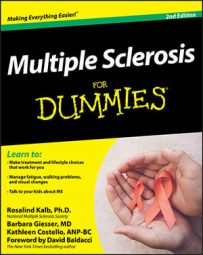Maintaining a healthy partnership can become especially difficult if multiple sclerosis (MS) progresses significantly. The more disabled a person with MS becomes, the more involved the partner is likely to be in his or her care. Caregiving activities can run the gamut from occasional assistance with daily activities like taking medications, buttoning buttons, and preparing meals to full-time, hands-on care with dressing, bathing, using the bathroom, and eating.
When one person is always on the caregiving end and the other is always on the care-receiving end, the relationship is no longer balanced. The give-and-take foundation for the partnership has been lost. But, it really doesn’t need to be. Except in the case of severe cognitive impairment, which fortunately is relatively rare in MS, every person can contribute significantly to a partnership, even if he or she has to do it differently.
Here are some tips for creating a care partnership:
Make sure that each of you feels like a contributing member of the partnership. Figure out together what the person with MS can do to support the activities of the household. Be creative and remember that assistive technology can make many things possible.
Ensure that both of you are being givers and receivers. Healthy partners need to let their MS partners know what they need; even if the partner with MS can’t do much in the way of physical activities, he or she can give a lot in the way of caring, support, humor, advice, and so on.
To the extent possible, keep caregiving activities separate from your couple time. For example, hire outside caregiving help if you need it and can afford it. Make dates for together-time that doesn’t involve caregiving activities. Or come up with activities that you can share and enjoy, such as watching movies, reading aloud, and going out to dinner.
Over time, every partnership develops its own set of ground rules. These ground rules are often unplanned and unspoken, but they’re real just the same. According to these rules, each partner has areas of responsibility, such as breadwinner, chief cook and bottle washer, primary parent, gardener, grocery shopper, bill payer, and so on. The division of labor, however it evolves, ensures that the work gets done and that each person feels cared for.
Sometimes something will come along to disrupt the pattern temporarily, but it generally rights itself pretty quickly. For example, families go through this when someone gets a cold or the flu. For a few days, everyone chips in to help the family member who’s not feeling well. Then, as soon as the person feels better, everyone goes back to the usual routine.
When MS comes along, partnerships can get thrown out of whack. If one partner begins having difficulty managing his or her end of things, the ground rules gradually start to shift. The shift may last for weeks or months — until the current exacerbation is over — or forever.
Here’s the risk in this situation: The partner whose disability is getting in the way gradually begins relinquishing responsibilities. The other partner steps in to pick up the slack, and pretty soon the person with MS isn’t contributing his or her share. And nobody feels good about it. The person with MS feels guilty and his or her partner begins to feel tired, overburdened, and perhaps resentful.
From the get-go, it’s a good idea to assume that partnerships thrive best when they’re balanced. For example, if the partner with MS begins to have difficulty with an activity, keep the partnership balanced by doing a swap of chores. It doesn’t matter what the swap is as long as both of you still feel valued.
Unfortunately, one of the biggest obstacles to this kind of swap tends to be people’s sensitivity about gender roles. In these situations, you may hear things like “But she’s supposed to do the cooking, the housework, and the carpooling” or “He always cut the grass, shoveled the snow, repaired stuff, and paid the bills.”
Some advice? Get over it! The strength of your partnership will depend on your ability to be flexible when and if you need to be (not on whether you’re doing the “right” chores).

